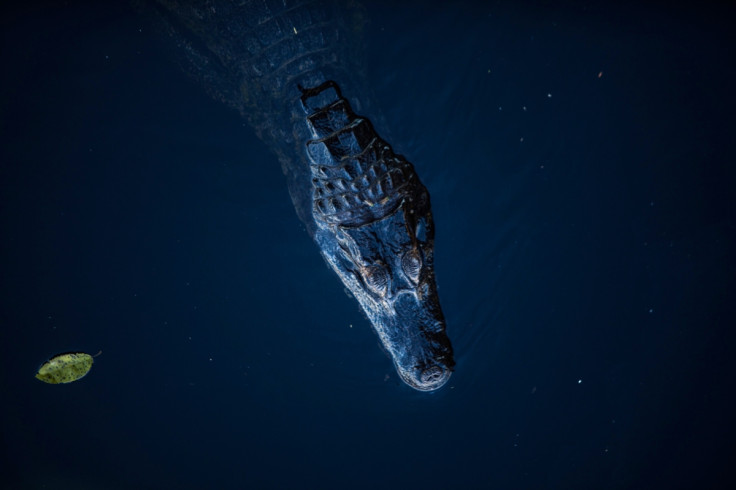Sleeping crocodiles still keep watch with one eye open

Research conducted in Australia on captured saltwater crocodiles shows that the prehistoric reptiles can sleep with one eye closed and the other monitoring its surroundings. The study was undertaken by Melbourne's La Trobe University researchers, who filmed three crocodiles in the university's aquarium.
"We had a human stand still next to the tank for 10 minutes - the animals responded to that quite strongly and watched the person closely with one eye," John Lesku of Melbourne's La Trobe University, who led the study, told the Guardian Australia. "After the human left the room they kept looking at the last location of the person with the other eye closed. This suggests that crocodiles have the same kinds of brain activity that birds do."
Later, when a young crocodile was introduced to the older crocodiles, they watched over it while dozing, Lesku said.
The study, published in the Journal of Experimental Biology, says that crocodiles can sleep with one eye open because they have the ability to switch off one side of their brain, while the other half of the brain remains active. The trait called "unihemispheric sleep" by biologists, can be found in birds, dolphins, walruses, seals and reptiles.
The Max Planck Institute for Ornithology in Germany has also found that the trait is shared among Nile and Caiman crocodile species. "This suggests that this is a crocodilian trait not specific to one species," Lesku said.
"It persists into adulthood, meaning that an ambush predator could be immobile yet still looking out for prey. If an animal went to the bank of a river, the crocodile could fully wake up and attack it. I would certainly never approach a crocodile whether its eyes are open or closed. A good rule is to never approach them," he added.
© Copyright IBTimes 2025. All rights reserved.





















